
Last night, the BBC aired the first episode of their new Food & Drink programme with Michel Roux Jr in charge. Joining him to bring a taste of wine to the show is TV newcomer Kate Goodman. Together they are reviving the seminal Food & Drink TV brand that many middle-age wine drinkers will remember from their formative years.
The original programme was the one responsible for bringing Oz Clarke and Jilly Goolden together to entertain, beguile and confuse us regarding the wines of the world and was thus an integral part of the explosion in (quality) wine consumption in the UK.
The new programme has an issue though, but they may have turned the weakness into an opportunity – or at least partly.
The BBC is enforcing its guidelines to avoid mentioning or endorsing specific brands, and while that may be OK for a cut of pork, or balsamic vinegar as a cooking ingredient, it is not helpful for wine. Consumers expect to know what wine is being drunk and tasted so they might find it and buy it.
Other programmes, such as Saturday Kitchen, also include wine content, and presenters such as Olly Smith, Tim Atkin, Susie Barrie and Peter Richards show a single bottle and because of this, it is almost exclusively selected from UK supermarket shelves so that it is available to a majority of the show’s audience.
Food & Drink gets around the issue of where to select wines from by having Kate Goodman focusing on the provenance of the wine itself, educating the audience (in a gentle way) about styles of wine rather than promoting individual bottles – and therefore studiously ensuring the brand is not shown, but being able to use wines only available in smaller merchants, and at a much higher average price point. Last night’s wines were a £13 Dao red from Portugal and a £13 German Riesling.
[if you want to know what I believe the wines were, visit my That Wine on TV site – just a play-thing at the moment]
Certainly the cookery content was aimed at a more basic level than many other programmes, covering roast pork and potatoes, and a relatively straightforward vegetable tarte tatin (which looked lovely). This was for a very wide audience indeed.
The effect, of course, is that the audience then clammered (on twitter, facebook, etc.) for information on what the wines were so that they might buy them, which I believe creates an interesting opportunity if not for the BBC, for an enterprising UK wine blogger (more of that later).
In theory at least, it means consumers are not just noting down a brand name on their shopping list, but concentrating on something like the regional name in order to help them buy better more generally. A laudable aim. Certainly the Dao and Mosel Riesling deserve better consumer awareness.
But will it work? Were people too distracted trying to work out what the wine was? Is there much value in giving totally generic advice about the style of wine from diverse regions such as these (not all Daos are fruity and the variety of Mosel riesling would make your head spin).
It will be interesting to see how this format develops and whether they can continue to avoid mentioning specific wines, or if they need to concentrate a little more on individual wines or producers rather than regions in order to have an impact. It might also allow others to develop related sites to help consumers which I discuss on “Wine on TV comes to a Second Screen”
In any case, I shall be watching the series to see what other wines are featured and try to work out what they were, and opening a bottle of Dao and Mosel Riesling to celebrate with fellow wine lovers that wine is getting more TV coverage.

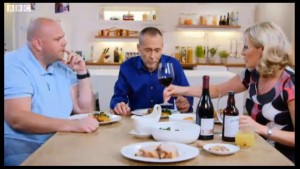

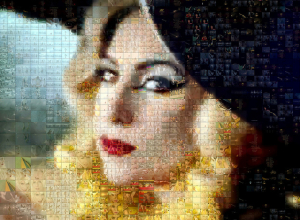
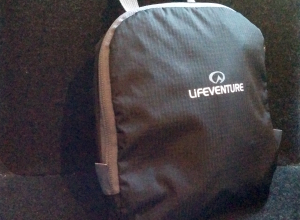
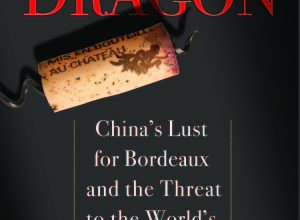
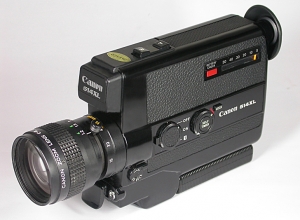
February 5, 2013
Saturday Kitchen gets a lot of stick from wine lovers on Twitter over its focus on supermarket wines rather than from independents. The programme, of course, is trying to make wine accessible to all. I cannot see anything wrong with being more generic about wine styles, rather than specific wines (which may yet go down the supermarket route) if you are going down the food and wine matching route. However, I think they need to repeat the style of wine as part of the conversation (if you missed the word Dao, then they could have been talking about any wine region in Portugal). It would also be more effective if they backed it up with more information online. If it’s there, I haven’t seen it. Just the recipes.
It is a also a massive opportunity for retailers to communicate their own examples following the show. I wonder how many did that?
February 5, 2013
Very good points. As part of my search last night I went to most retailers sites and discovered there was almost no Dao listed on the high street at all, so they will all have missed out. I need to add more links to the “Suggested alternatives” on the other site, so if you have suggestions, please do help me out and suggest a few 🙂
As for offering generic information, I agree that it is not in principle bad, but the Riesling presentation reminded me of the problems I discussed before (http://wineconversation.com/as-my-riesling-gently-weeps/). If it is too generic, it doesn’t help.
February 18, 2013
Sorry but Kate Goodman just is no match for Jilly Goulding and def weak link on the show, Get Rid!
February 25, 2013
She just doesn’t make the wines sound interesting. She needs to emphasize more at where it is from if she won’t tell us exactly what it is.
February 8, 2014
Nay, keep Kate, she tells you enough to get on the internet and find where you can buy them. For me she’s the strong link on the show. Jilly Goulding was all flowery expressions about aromas, only her nose could detect them.
February 25, 2013
iv seen the new food and drink boring rubbish get a british cook not chef that can cook sheperds pie properly and jam rolly polly not fluffy rubish with a bit of chefy burnt sugar over the top,and the condsending way that they talk down to us no no
January 28, 2014
Oh dear here we go again, more of the same from the upper classes who think a reasonably priced bottle of white wine is Only £10, try Aldi at £3.
I see they have dragged in Mary the cake who has been feeding us with cakes made from tons of processed sugar and white flour. What would the manufacturers do without all this processed sugar with is making diabetics out of us all. Come on Mary and the Michelin guy start reeducating the nation without using all these terrible processed additives. Oh and please don’t get Mary drunk every week making her slurp gallons of expensive wine.
It’s good to encourage us not to throw away still good food because it’s a bit old, so keep up with the theme but don’t encourage us to mask it with sugar and other additives to make it more palatable. Love Clive